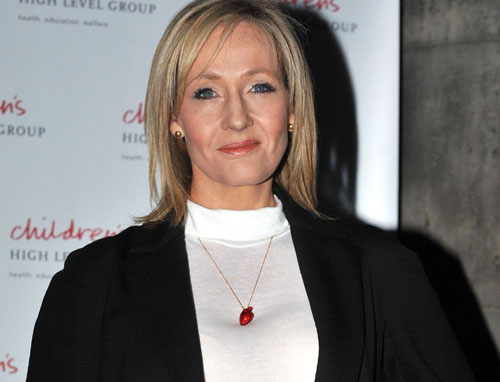JK ROWLING has publicly slammed the Israeli government for its “brutal” and “unjust” treatment of the Palestinian people.
But the Harry Potter author said she opposed a wider cultural boycott of Israel because it would “silence” the voices that need to be heard.
Rowling took to Twitter after a number of fans used her Harry Potter characters to argue in a favour of a total cultural boycott of the nation.

She wrote: “The Palestinian community has suffered untold justice and brutality. I want to see the Israeli government held to account for that injustice and brutality.
“Boycotting Israel on every possible front has its allure. It satisfies the human urge to do something, anything, in the face of horrific human suffering.”
But she added: “What sits uncomfortably with me is that severing contacts with Israel’s cultural and academic community means refusing to engage with some of the Israelis who are most pro-Palestinian, and most critical of Israel’s government.
“Those are voices I’d like to hear amplified, not silenced.”
She concluded: “A cultural boycott places immovable barriers between artists and academics who want to talk to each other, understand each other and work side-by-side for peace.”
Rowling said fans had used her characters to make points about the boycott. She said some readers pointed out that “talking” did not stop the Wizarding war in the novels and drew parallels between that and the conflict in the Middle East.
But Rowling said: “It was true in the Potter books, and it is true in life, that talking will not change wilfully closed minds.”
Referring to the character of Snape, who is persuaded to swap evil for good, she said: “The course of my fictional war was forever changed when Snape chose to abandon the course on which he was set.”
Fans praised her evaluation of the conflict, and wrote hundreds of replies in support.
One wrote: “As a left-wing Israeli, I agree. We need to talk things over with the Palestinians. Boycotting us all is not the solution.”
Another named ‘Lauren’ said: “That is brilliantly said. I enjoy that you are always willing to explain things to your fans.”
Another added: “That was incredibly moving to read. A valid reasoning, whatever others say in the argument.”
Not all echoed Rowling’s sentiments, however. One user said: “It’s extremists on both sides that ruin it. Most citizens just want peace, and a person is a person – not a Muslim or a Jew.”
Rowling recently put her name to a letter written in response to a February missive signed by around 700 artists calling for a cultural boycott of Israel.
The letter cites its signatories’ belief that “cultural boycotts singling out Israel are divisive and discriminatory and will not further peace”.
It also states that “cultural engagement builds bridges, nurtures freedom and positive movement for change.”

